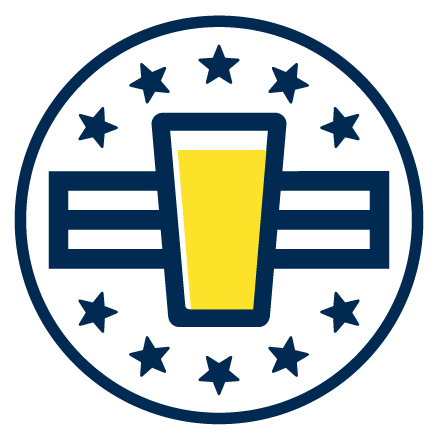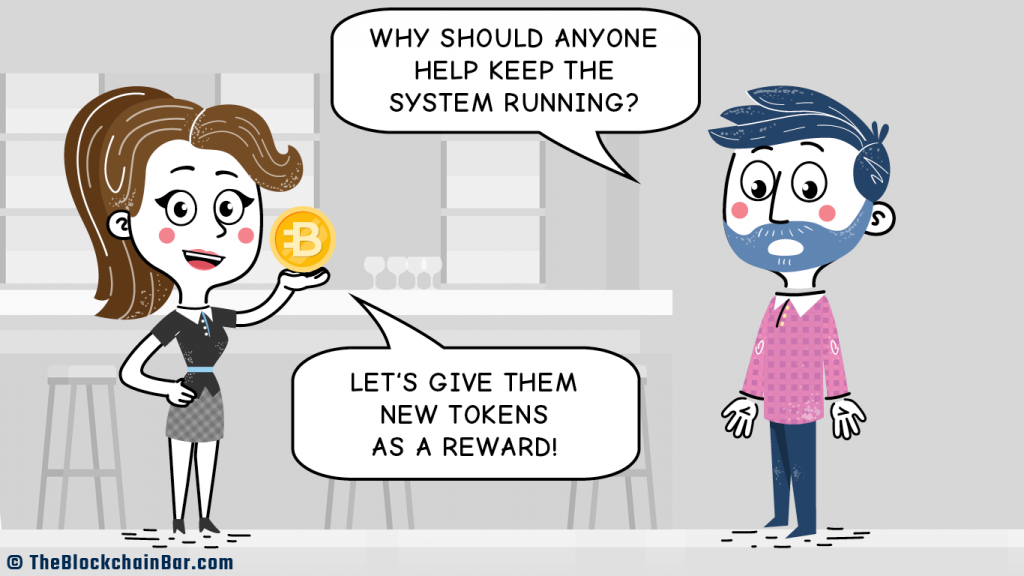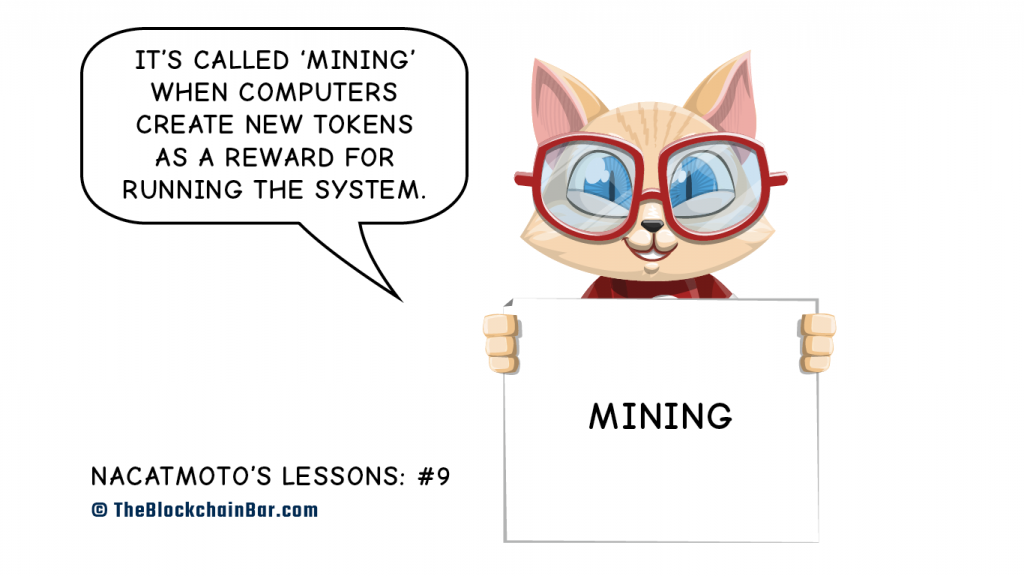Keeping records of all the orders is becoming more and more cumbersome with all these regulations. Some guests just want to drink beer.
Oscar whines: “All that work keeps me from drinking!”
Bob remarks: “I can understand that not everybody wants to work for free.”
Alice agrees: “You’re right. We should reward those people who help keep the system running!” They agree to give new beer tokens to the guest who finishes a page and the fingerprint calculation first.
In the real world, those computers that win the race to create a new block are rewarded with new Bitcoins or other tokens. This is called ‘mining’.
Overall, Blockruption’s Blockchain Bar seems to be quite a success. Find out in the next episode how our friends can bring it to the next level…
Or maybe you first want to read more about mining below.
Understanding Blockchain
New tokens as a reward for miners who keep the system running
Until now, all guests in The Blockchain Bar were also ‘miners’, i.e. they all helped to keep a copy of the drinking list and to generate new pages (blocks). What happens if some of the guests decide to not help keeping the list? Is it possible that only a minority of guests are miners? Why should anyone continue to keep lists when all others drink without doing any work?
Every time a miner finishes a page and the related chaining calculation and wins a round of mining, he/she gets a free drink. The winning miner can just add one more transaction to his/her page of transactions and reward himself or herself with a new beer token.
With that mechanism, guests who are good at keeping lists and doing the calculations can earn money by doing the mining work. And of course we can offer more or less tokens per finished page depending on the need to incentivise guests to become miners.
Again, in the real blockchain world things are very similar. Everytime a Bitcoin miner wins to create a new block, he/she can add an additional transaction that rewards him/her with newly created Bitcoins. That is the mechanism how new Bitcoins are created.
In addition to the new Bitcoins per block, the winning miner receives the transaction fees of all transactions included in the new block.
The Bitcoin protocol defines the amount of new Bitcoins per block to decrease over time. At the time of writing, the reward for mining a new block is 12.5 Bitcoins, which is roughly $80,000, EUR 66,000, or about 30,000 glasses of beer.
Currently, most other blockchains operate with similar rewards for mining in their proof-of-work consensus algorithms.
Giving out free beer tokens and generating new Bitcoins both allow some people to just use the network while others use their math skills or their computing power to keep the network up and running.



